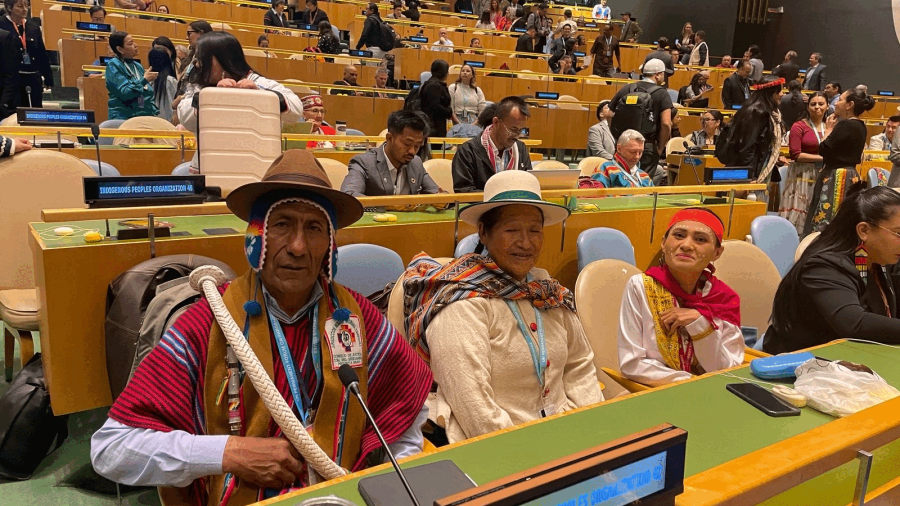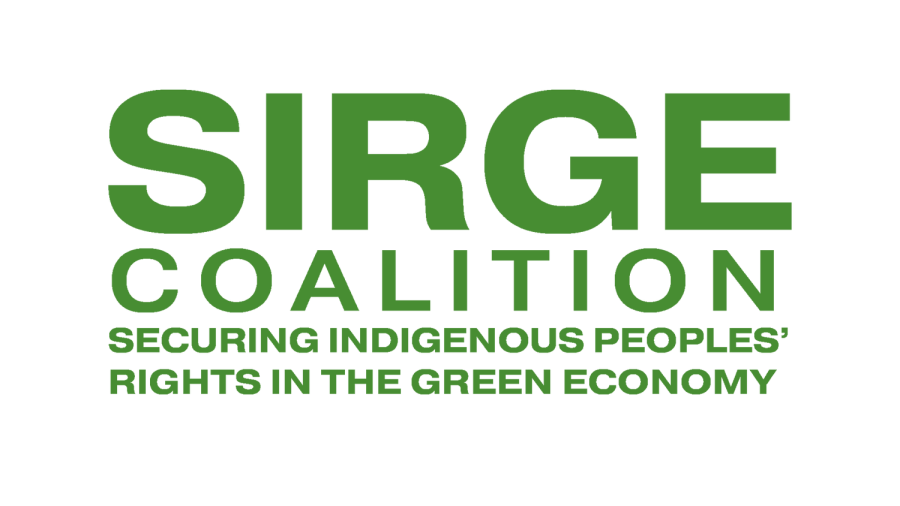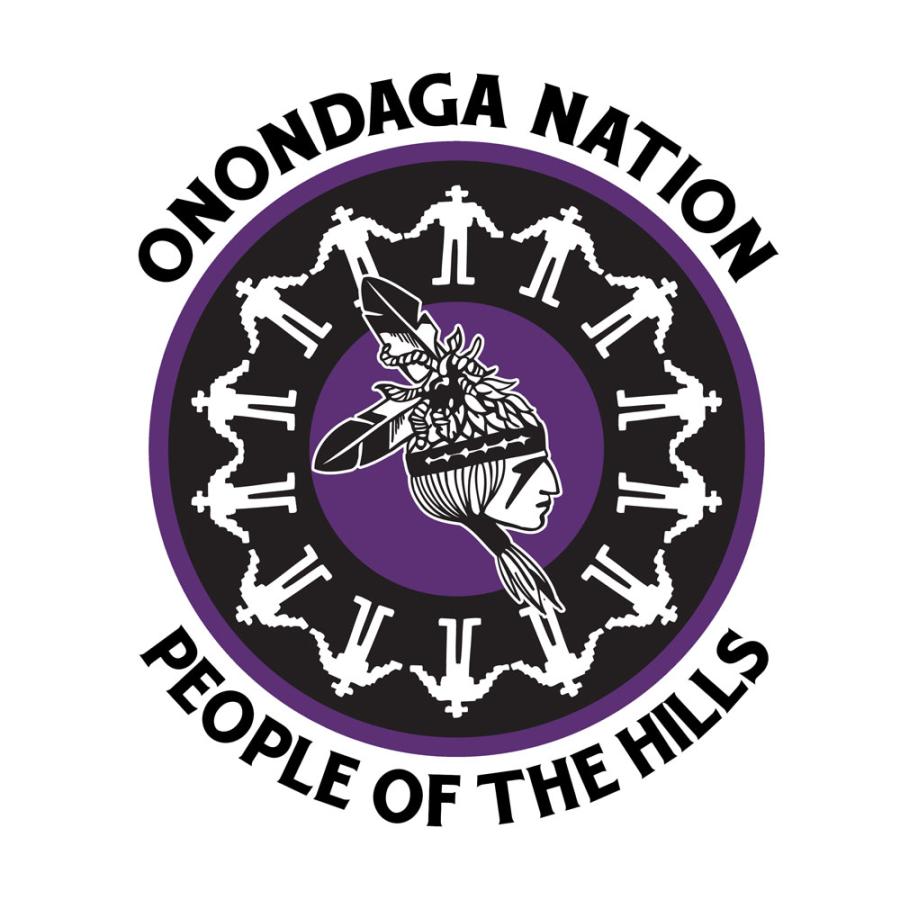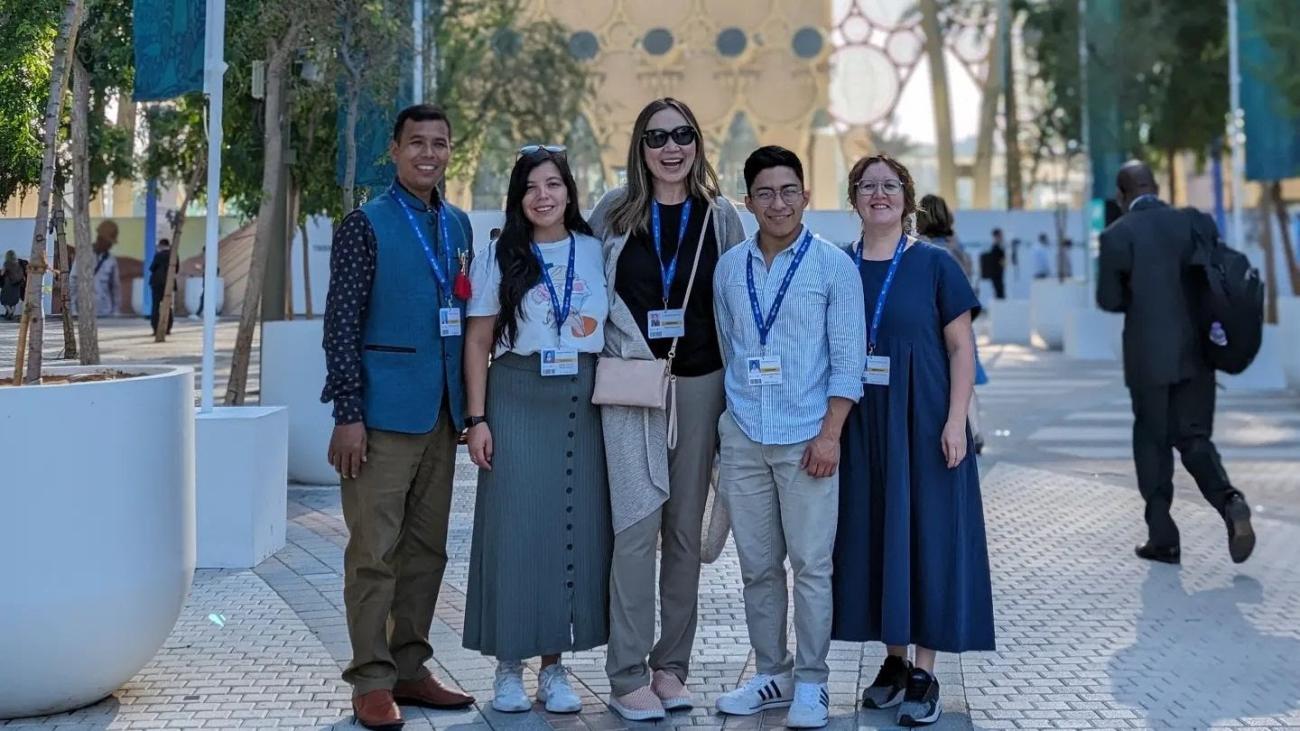
Cultural Survival's delegation is on the ground at the United Nations Framework Convention on Climate Change (UNFCCC) Conference of Parties (COP 28) in Dubai, UAE, until December 12. We have been following the negotiations on matters important to the rights and futures of Indigenous Peoples.
COP28 meetings began on November 30, where about 70,000 delegates, including over 300 Indigenous leaders who are advocating for Indigenous Peoples’ rights and the future of the planet, are participating. To no one's surprise, the largest delegation is the one connected to the coal, oil, and gas industries; as reported, they have over 2400 delegates registered at this COP. Consequently, there is a high probability that an agreement on phasing out fossil fuels is not on the table.

Loss and Damage Fund:
On the first day, the COP28 Presidency agreed to operationalize the Loss and Damage Fund. While the COP presidency touted this as a success, the $700M pledged by countries most responsible for climate change is nothing compared to the estimated $400 billion loss and damage faced by developing countries as a result of climate change impacts every year.
In the lead-up to the agreement on the operationalization of the Loss and Damage Fund, the International Indigenous Peoples Forum on Climate Change (IIPFCC) called for an Independent Legal Standing for the Loss and Damage Fund; a clear exit strategy of the Loss and Damage Fund from the World Bank; Indigenous representation in the board of the Fund; direct and simplified access for Indigenous Peoples; non-debt creating finance; a human rights-based approach; establishment of a grievance mechanism; and emphasis on averting loss and damage. The Loss and Damage Fund should prioritize the protection and enhancement of Indigenous Peoples’ rights and needs; and ensure Indigenous Peoples’ full and effective participation in its operationalization.
Civil society organizations voiced their concerns about the language in the agreement, which fails to put the responsibility to pay for loss and damage on the largest polluting countries and, instead, will accept a variety of sources of funding.

The SIRGE Coalition hosted a side event on transition minerals and how to avoid the mistakes of the fossil fuel industry.
Transition to a Green Economy:
A new pledge called The Global Renewables and Energy Efficiency Pledge was announced during the first week of COP28. This new pledge is calling for a tripling of renewable energy capacity from current levels by 2030. We foresee an increase in pressure on Indigenous lands as demand for transition minerals for the production of renewable energy technologies increases.
We express our concern about the narrative being pushed at official and unofficial discussions at COP28. Where mining companies and third-party certification organizations are discussing how to resource the growing demand for renewable energy technologies without meaningful consideration for the rights of Indigenous Peoples. Corporations must adopt Indigenous Peoples’ policies that ensure respect for the rights of Indigenous Peoples throughout their supply chains as prescribed by UNDRIP, including the right to Free, Prior and Informed Consent. Anything that does not meet the minimum standard of UNDRIP is not acceptable.
Cultural Survival is advocating for Indigenous Peoples’ rights in these spaces and reminding governments and corporations that Indigenous Peoples are not only stakeholders, but they are also rights holders, that we will exercise our right to self-determination and protect our lands and territories and all the biodiversity contained within.

Galina Angarova, Executive Director of Cultural Survival, presented our latest publication, Securing Indigenous Peoples' Right to Self-determination: A Guide on Free, Prior and Informed Consent.
Expectations for Week 2:
The negotiations on the first Global Stocktake will conclude in week two of COP28. We hope that governments finally take the existential threat of climate change seriously, put their selfish nationalist interests aside, and agree on more ambitious goals for the good of the world we live in and humankind.
Discussions on Article 6 of the Paris Agreement, related to carbon markets, continue in Dubai. Nature-based solutions and net-zero solutions are false solutions because they fail to address emissions reductions at source. Instead, they permit the destruction of ecosystems in one place for the promise of restoring ecosystems in another place. There are many documented and ongoing cases of false solutions that violate the rights of Indigenous Peoples, we call on governments to take responsibility in their climate mitigation actions and uphold the rights of Indigenous Peoples as prescribed by UNDRIP.
Our team continues to engage several Indigenous leaders on the different thematic issues being discussed. Below, we share with you some recordings from events we organized and participated in, as well as a sample of the interviews we conducted.
Follow us on Facebook, X/Twitter, and Instagram as we report on key actions and takeaways from COP 28.
COP28 Opening Statement of the International Indigenous Peoples’ Forum on Climate Change
On Day 1 of COP28, Pema Wangmo Lama Mugum, an Indigenous youth activist from the Mugum Indigenous Nations in Asia, from the National Indigenous Women's Federation - NIWF NEPAL read the International Indigenous Peoples Forum on Climate Change opening statement. Read more.
COP28: Indigenous Leaders From Around the World Unite in Historical Call for Consent on Mining Projects During Energy Transition
100 Indigenous leaders and allies join letter directed at COP28 delegates to ensure Indigenous Peoples’ rights are secured in the clean energy transition. Read more.
Indigenous Voices from COP28

Loss And Damage Explained - Kimaren Ole Riamit (Maasai)

High-Level Discussions Must Be Understood At Grassroots Level - Mesiah
(Fort Yuma Quechuan)
Indigenous Peoples Need Real, Tangible Outcomes - Amba-Rose (Gumbaynggirr)
Victor Carmen On Climate Resilience (Dakota and Yaqui)

Our Birds, Plants And Foods Are Disappearing - The San of Botswana - Job Morris (San)

We Are Here To Speak Our Truth! - Carol Monture (Mohawk, Wolf Clan)

Climate Change Hits Us Hard! - Samante-Anne (Maasai)

We Want to Be Part of the Conversation - David Alberto Hernández Palmar (Wayuu)

The Difference Between Indigenous Peoples and Local Communities - Naw Ei Ei Min (Karen)

Indigenous Peoples Cannot Do It Alone - We Need Your Help To Battle Climate Change! - Jeff Ferguson (Spokane)

Climate Change Affects The Arctic Twice As Fast - Inka Saara Arttijeff (Sami)

We Are Here to Defend Our Forests, Traditional Food Systems, and IP Rights! - Daria Egereva (Selkup)

We Do Our Best To Defend The Earth, Yet We Are The Most Affected - Laissa Mali (Maasai)

An Opportunity to Share Traditional Knowledge with an International Audience Is Remarkable - Jean Mary Tjiohimba (San)
Access Recordings of Events at COP 28
 Galina Angarova, Executive Director of Cultural Survival, speaking at COP28.
Galina Angarova, Executive Director of Cultural Survival, speaking at COP28. 
Funding the Future: Investing in Indigenous Women to Lead Climate Solutions
 Securing Indigenous Peoples’ Rights, including Land Rights in the Transition to a Green Economy
Securing Indigenous Peoples’ Rights, including Land Rights in the Transition to a Green Economy  Climate Financing: How Can the News Loss and Damage Fund Effectively Support Indigenous Climate Solutions?
Climate Financing: How Can the News Loss and Damage Fund Effectively Support Indigenous Climate Solutions?
Upcoming Events at COP 28
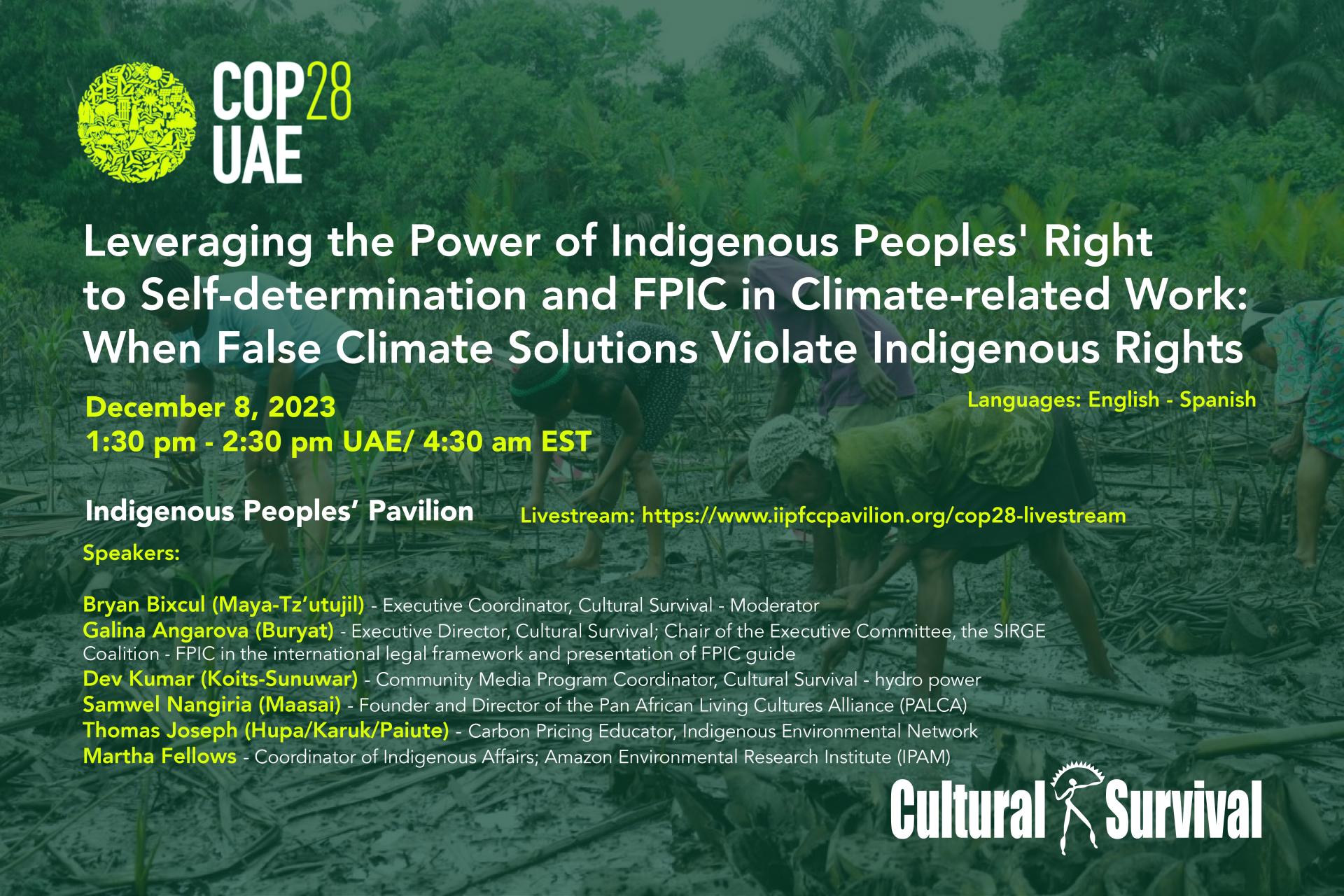
Leveraging the Power of Indigenous Peoples' Right to Self-determination and FPIC in Climate-Related Work: When False Climate Solutions Violate Indigenous Rights
December 8, 2023
1:30 pm - 2:30 pm UAE/ 4:30 am EST
Indigenous Peoples’ Pavilion
Livestream at: www.facebook.com/iipfcc




